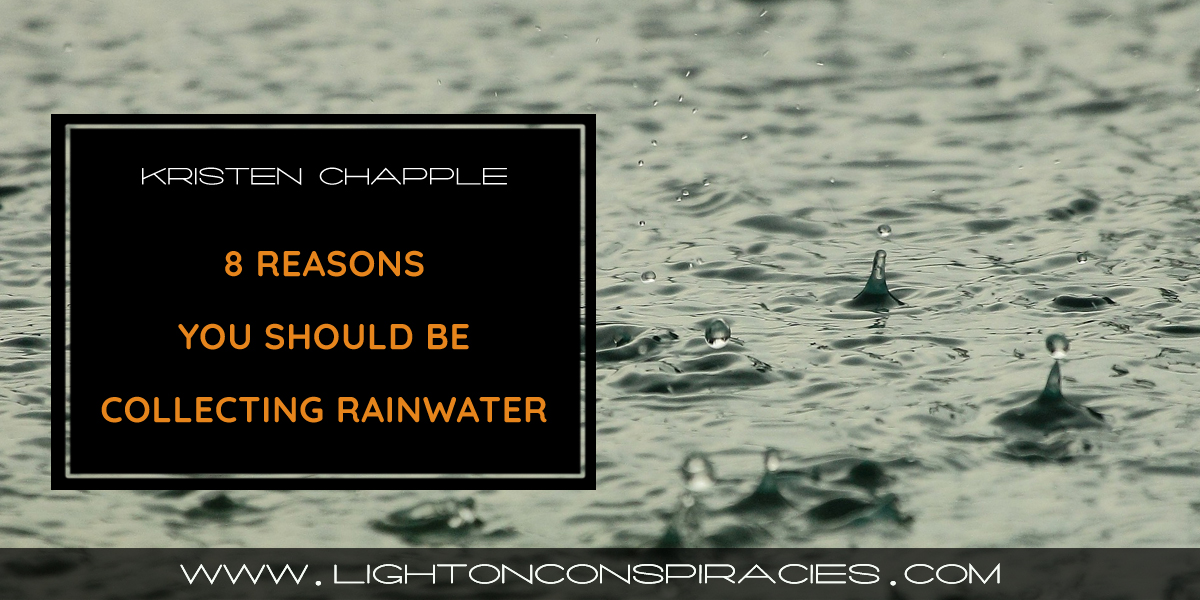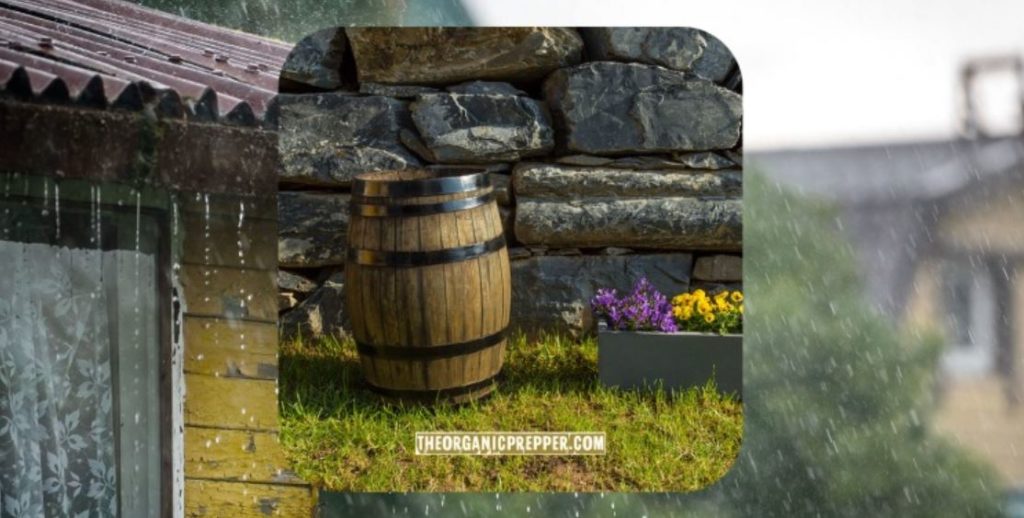Collecting rainwater is a vital prep. As an added bonus, it helps you save both money and the environment while preventing possible property damage.
Rainwater generally runs out of the downspouts, through the lawns, and into the trench drains during the rainy seasons. This water then goes to the storm drains, channeled to the nearest stream or lake. During heavy storms, this water can destroy properties as it finds its way to the storm drains. Sometimes, trash or pollution goes with the water into the lake.
Why not harvest and store rainwater in barrels and reap the many benefits?
By harvesting rainwater during the rainy season, not only do you save money, but you are also helping to save the environment. Instead of allowing the rainwater to go to waste and possibly damage your property, collect and store the rainwater in barrels. Barrels can harvest and hold about 80 gallons of rainwater per rainfall.
Rain barrels are unique containers that can help you collect and store rainwater from the downspouts and roof for future use. A rain barrel can reduce the amount of rainwater in the storm drains by collecting the roof runoffs. Remember, rainwater is chlorine-free; therefore, you can use it to water your garden plants and organic farms.
EcoPeanut offers a great review of rain barrels to consider.
When installing a barrel, ensure that it has a screen to eliminate the debris. Your barrel should also have a tight connection where the rainwater enters and a reliable cover to prevent algae buildup and mosquito breeding.
Collecting rainwater will help you be better prepared.
Obviously one of the best reasons to collect rainwater is you can survive up to three weeks without food, but only three days without water! Daisy’s book, The Prepper’s Water Survival Guide, offers a step-by-step plan with straightforward information you can easily follow. You will quickly learn how to:
- Store fresh water
- Collect rainwater
- Purify water from lakes & rivers
- Dig a well for groundwater
- Gain the tools to keep large stores untainted for long periods of time
- Test the water you collect for dangerous toxins
- Treat water-related illnesses that are commonly contracted during a disaster
Reduce your water bills
Owning water barrels can be one of the best solutions for people who pay monthly water bills to use the city water supply. Installing barrels can help you reduce your monthly water bills. With thousands of gallons of water falling with every single rainfall, you can conserve the pure rainwater and use it to water your garden and lawn for several weeks and keep your entire compound clean without ever opening the city supply.
You can also use rainwater to wash your pets, houses, and vehicles.
Rainwater grows healthier plants.
It’s a known fact that plants are not huge fans of tap water. Tap water is treated with numerous chemicals, including chlorine, for disinfection purposes that don’t work well with some nutrients that our plants need. But with rainwater, you will never have to worry about these chemicals since it’s a natural source of water that can help promote certain plants’ growth. After all, a considerable percentage of the plants growing in our backyards are prone to chlorine toxicity.
Therefore, rainwater can provide a sustainable water source that can quench the thirst of outdoor and indoor plants. Plants look lush and greener during the rainy season thanks to a large percentage of nitrogen present in the air that rain collects as it falls. Nitrogen helps rejuvenate the plants.
It can be a source of water during dry seasons and droughts.
Most people who reside in arid or semi-arid regions may think that owning a barrel is pointless because they will never get enough water. But did you know that it takes less than an inch of rain to fill a rain barrel, depending on your roof’s size? With a thousand square foot roof and an inch of rainfall, you can collect more than 600 gallons of water.
With a bigger roof, gutters, and strategically installed downspouts, you can collect more than enough water. The harvested water can help you maintain your eco-friendly garden during the dry seasons.
It can protect your property from flooding and rain damage.
Installing gutters and downspouts to help you collect water during the rainy season can prevent flooding in your backyard. Collecting water can help you control the ground’s moisture levels around your home’s foundation by preventing a huge amount of the water from hitting the ground.
A strategically installed water harvesting system can help direct rainwater away from your home’s foundation to where you want to collect it, which also prevents water from flooding in your neighborhood.
It helps reduce the stress on stormwater runoff systems.
In industrialized places, buildings, concrete, and impervious surfaces prevent the water from being soaked into the grounds. Therefore, the water flows into the city’s sewage systems. Residential stormwater runoff systems in most places are limited. Allowing too much water to flow through them can be quite catastrophic. Residential stormwater runoff systems can reach capacity when the sewer system is blocked or during heavy rainfall.
Therefore, harvesting rainwater in barrels can help divert it from the storm drains. Rain barrels can help you reduce the amount of rainwater getting into the overloaded residential stormwater systems.
You’ll help create natural waterways and healthy drinking water.
When the rainwater hits the ground of an uninhabited region, it gets cleaned out, including the water that has picked up some pollutants. And that is because the soil acts as a filter. But when it runs along streets and rooftops, it collects many pollutants and flows into the drinking water treatment site and natural waterways.
So, you can prevent a considerable percentage of the contaminants from reaching the natural waterways in your hometown by collecting the water.
It prevents soil erosion
Collecting the rainwater in barrels can help slow down the water flowing down the roofs, which can help reduce soil erosion. Soil erosion can get rid of the nutrient-rich topsoil and even damage your home’s foundation. Installing a barrel in your home can help prevent soil erosion in your region by reducing the amount of runoff water.
What’s not to love about collecting rainwater?
Harvesting rainwater using barrels is an excellent way of getting free water replenished every season at no extra fee. It is a great way to ensure that your plants get nitrogen-rich and chlorine-free water all summer long.
Have you collected rainwater? Do you have any tips or techniques to share with other readers? We would love to hear from you in the comments below!













